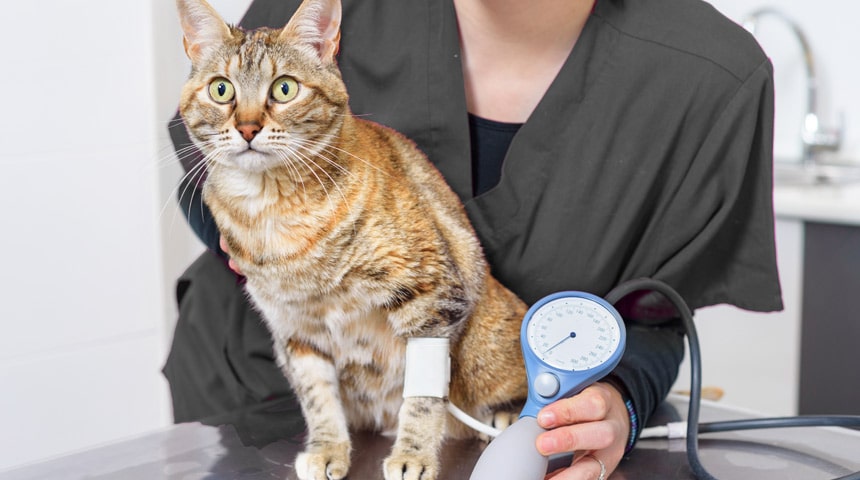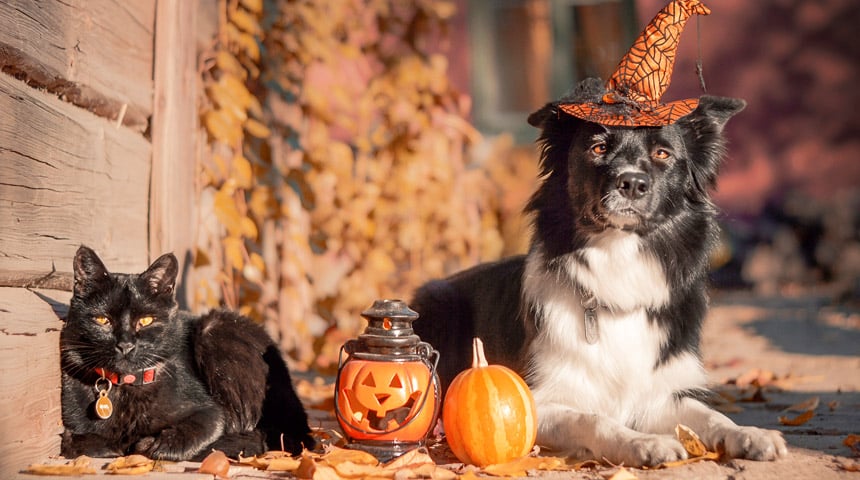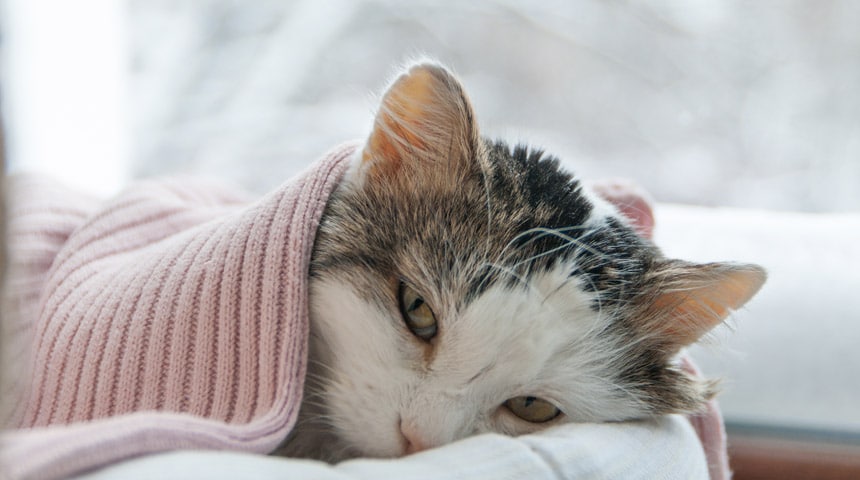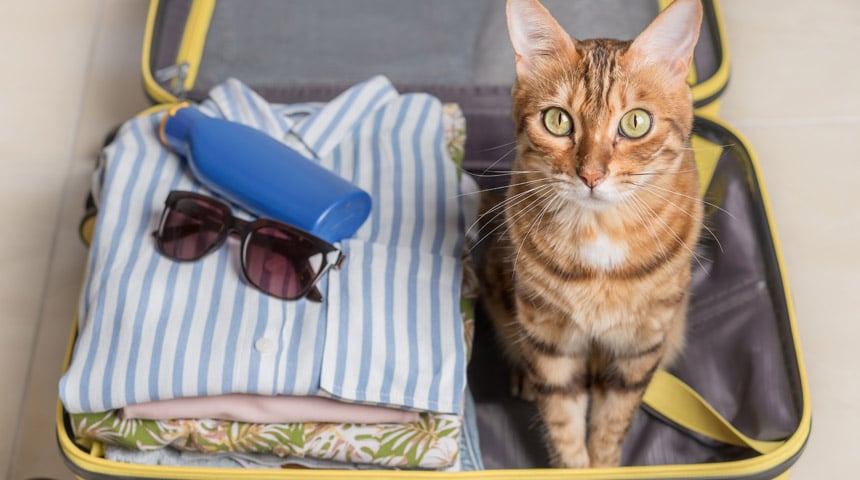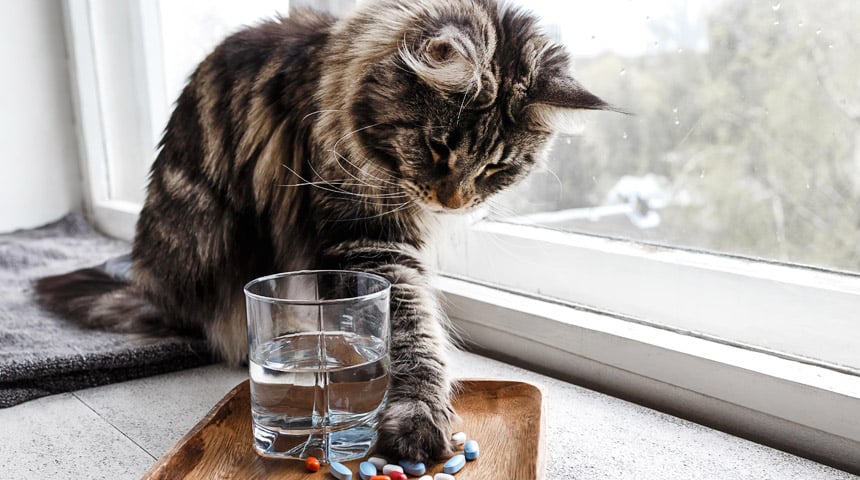Did you know that Max can suffer from hypertension? The most common causes of high blood pressure in cats are hyperthyroidism and chronic renal failure. Sometimes, there is no specific cause; this is called idiopathic hypertension.
Hypertension affects:
- 2% of all cats, and 9% of cats older than 10
- 80% of cats with hyperthyroidism
- More often males than females
This condition is called the "silent killer" because Max may suffer from it without showing any symptoms. However, his eyes, brain, heart and kidneys are at risk of damage. Hypertension over 200 mm can cause retinal detachment. Cardiac hypertrophy develops within one month of chronic hypertension appearing. As a result, 42% of hypertensive cats will also have a heart murmur or arrhythmia. As well, 92% of cats with high blood pressure also have kidney disease at the onset. They may also show changes in mental status due to brain damage.
A diagnosis is made with a device similar to the one used for humans, but adapted for pets. An adequate measurement may be difficult to obtain if Max is under a lot of stress when being handled.
How is hypertension treated?
- By addressing the primary cause, for example by treating hyperthyroidism if present.
- By avoiding foods that are rich in sodium, especially cat treats!
- By putting Max on a weight-loss diet to control his obesity.
- By prescribing medication with blood pressure monitoring. Pressure should be monitored regularly until normal values are achieved. Afterwards, it is best to have blood pressure checked 2 to 4 times a year.


